We are committed to providing a comprehensive STEM curriculum to inspire and equip educators and students to thrive in the dynamic fields of Science, Technology, Engineering, and Mathematics. We aim to offer all students a meticulously crafted curriculum to cultivate critical thinking, problem-solving skills, and a passion for innovation. Our strong foundation in STEM is essential for students to be successful. Therefore, we collaborate with schools and other educational institutions to provide high-quality curriculum development, allowing students to be successful in the rapidly evolving sector of STEM.
Our STEM curriculum is a transformative educational journey that empowers students to become problem-solvers, innovators, and leaders. Connect with us to equip the next generation with creativity, critical thinking, and an innovative future.

Four disciplines are covered in K12 STEM education (Science, Technology, Engineering, and Mathematics). Some of the components of the K12 STEM curriculum include:
In this approach, we frame the lessons so the students can explore scientific concepts and theories through hands-on experimentation and investigation. Our content and resources help educational institutions develop curricula that will engage students and foster their critical thinking, problem-solving skills, and creativity by adding real-world scenarios and providing an interactive and collaborative environment.
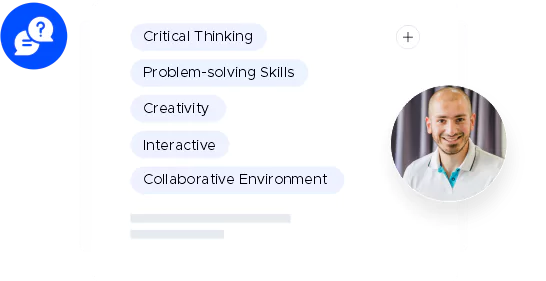
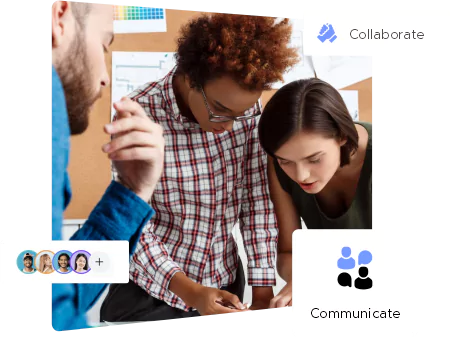
With our Project-Based Learning, we help educational institutions by developing content modules and resources where students can apply STEM concepts in solving real-world problems. Using this approach, educational institutions can help students learn to collaborate, communicate, and work together.
Project-based learning helps students develop the critical thinking and problem-solving skills necessary to solve real-life problems. Students can think out of the box and develop innovative ideas and solutions.
Our flipped classroom content and resource development focus on creating modules with pre-recorded video lectures or completing online activities before they come to the physical classroom. We build learning content, including hands-on activities, discussions, and group work in the classroom, giving learners a personalized and extended experience.
Flipped classroom methods allow students to be engaged and actively participate in the learning process, which increases their knowledge and retention power. Additionally, by this service, we help create more time for teachers to provide individualized instructions to their students and help them identify and address issues that may arise in the classroom.

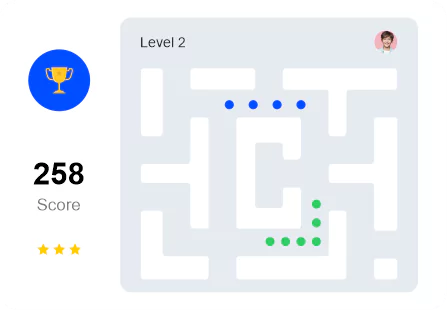
We implement game-based learning in K12 STEM education by adding educational games to teach students the concepts and skills used in STEM. We help to make students engage with their peers, motivate them, and maintain interest in the subject matter.
We break down complex topics into smaller chunks, making them easier to understand. We help students to learn through trial and error methods, which increases their understanding of the concepts and matter. Additionally, our game-based learning approach offers entertaining and interactive learning experiences for students, keeping them motivated and engaged throughout the learning process.
In maker education, we create content for a list of projects educational institutes can incorporate into the syllabus. Students get hands-on experience creating something from scratch using the concepts, tools, and materials they have learned in their K12 STEM education.
Our maker education aims to provide institutions with the content material and resources to help students develop creative solutions to problems and acquire new skills. Additionally, with this approach to learning, students get practical experience in coming up with innovative solutions.

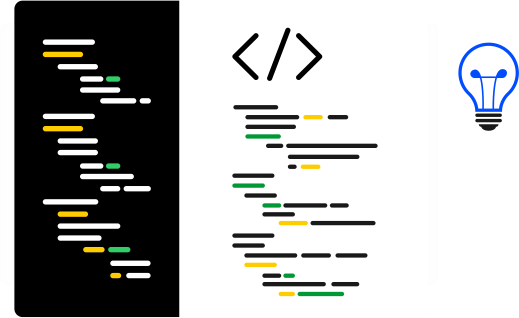
Our coding approach in K12 education involves creating content and modules for the students learning programming languages and coding skills. We help educational institutions to help their students in developing their computational thinking skills, problem-solving, and creative thinking.
With the help of coding education, students can apply their knowledge to solve real-world problems and use their coding skills to develop innovative solutions. Additionally, we create content by remembering that the modules help students use technology and manipulate data to drive decision-making.
Our blended learning solutions come with a combination of traditional classroom instructions and online learning. We flexibly develop content and resources and offer personalized learning experiences.
Following this learning technique in the classroom offers students the opportunity to learn at their own pace by obeying the instructions we have detailed in the modules. We also construct a different instructional manual for teachers, with the help of which teachers can concentrate on offering more individualized attention and support to each student.
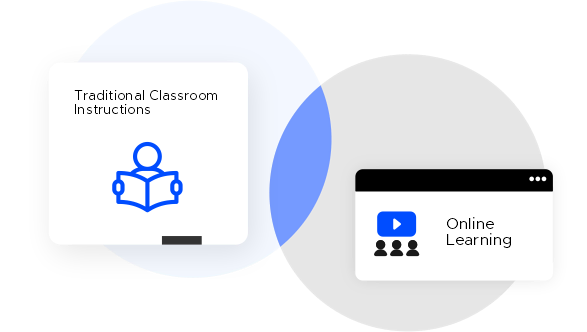
Some of the major benefits of incorporating K12 STEM Education include the following:
With the help of k12 STEM education, students can think strategically to solve problems by applying what they have learned about technology and engineering to find solutions. The projects included in STEM education allow them to see the subject through diverse perspectives.

Responsive education solution STEM provides fundamental learning to coding and engineering in primary school. With the help of K12 education solutions, you are not only developing the kid’s mind but also allowing them to build cognitive skills at a young age.

Solutions to STEM education also encourage creativity and curiosity among learners. It allows them to exercise their creativity and imagination and devise various new solutions and ideologies. As a result, their motivation is boosted.

The group activities involved in K12 STEM education allow children to enhance their social skills. They learn to communicate complex issues with others while learning it all together from their classmates.

STEM education extends beyond knowledge and employment opportunities. It helps students enhance the socio-emotional qualities responsible for success and happiness. STEM education pushes students to master these abilities before entering the workforce.

With the help of the activities involved in STEM education modules, students can collaborate with their classmates to solve issues and complete projects. This allows them to know about cooperation with others in a team-oriented setting.

Students learn the importance of innovation and technology when learning and studying through the K12 STEM education format. Learning new technologies can increase their eagerness to learn and understand them rather than being afraid or hesitant to try something new.

Learning with STEM education criteria can also aid children’s language development through the education process. It improves their vocabulary, leading to language skills and general knowledge development.

When learning through different activities, students apply methods and experiments that benefit them and those around them. By K12 STEM learning, the answer to the question that it would not work is now “let’s try and see” is the attitude they develop.

K12 STEM education offers knowledge of the skills that may apply in the real world. It encourages students to learn because now, they are aware of the abilities they gain by using the information in the real world, such as in workplaces.

The industries we serve to provide the best K12 stem education solutions are mentioned below:
We have a tight grasp on the latest trend in education, resulting in providing up-to-date K12 STEM education solutions. We provide personalized interactive K12 STEM learning solutions and aim to create an optimum learning environment across a diverse audience.
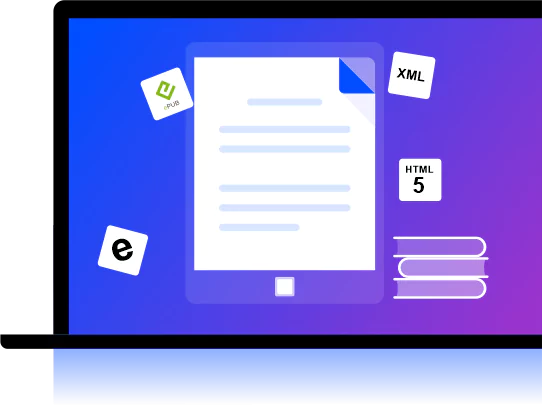
We are a leading K12 STEM Education solution provider in the UK, USA, and Australia schools. UAE, Singapore, and India. Our solutions are full of illustrations with a lot of fun activities for students to get engaged and learn without facing any burden.
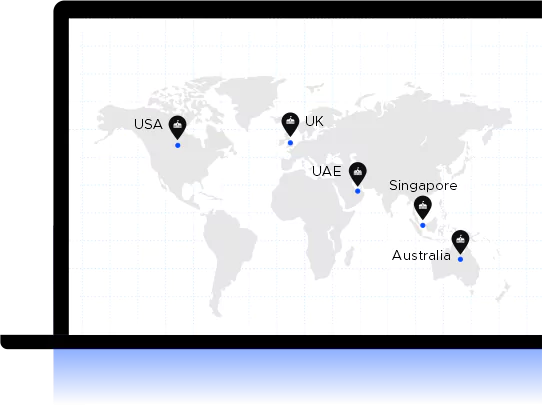
To provide accurate and well-written K12 STEM education modules, we follow the following steps:
We first understand the requirements of our clients.
We then work closely with our clients to identify the structure of the K12 Module.
The documentation of everything that has been discussed is written in an improvised manner.
The next step involves designing the documentation content in a way students find interesting and can learn things easily.
The development of the Module is made.
Some of the major benefits include:
By opting for STEM education in schools, you are allowing students to develop skills and concepts based on skill-based learning, unlike the traditional methods of learning focused on memorization techniques.
We aim to provide a basic functional system to beget productive and accountable citizens with the essential skills and learning for employment.
We add homework, quizzes, exams, essays, research projects, rubrics for oral and other performances, and case study analyses based on which you can measure the learning outcomes of students.
We add interesting things like why certain things float while others sink or make a mock crime scene where we ask students to investigate. This helps in developing their interest in science.
K12 STEM education allows students from Kindergarten to 12th standards to provide them with the knowledge and skills they need to pursue their careers in STEM fields. This approach to study allows the students to gain practical experience and develop skills like critical thinking, problem-solving, and analytical skills, which will help them boost their careers.
K12 STEM programs include robotics clubs, science, coding class, and engineering fairs. Many schools offer STEM-focused classes and programs like advanced math and science courses.
You can support K12 STEM education programs by advocating for them in local schools and communities, volunteering as a mentor or tutor for STEM students, and supporting the organization focusing on STEM.
We emphasize problem-solving, critical thinking, creativity, collaboration, and communication skills.
Some major challenges we face with K12 STEM education are a lack of resources, a shortage of qualified teachers, and the need for greater diversity and inclusion in STEM curricula.
We can integrate K12 STEM education into other subject areas by incorporating STEM concepts and skills into existing curricula, priming interdisciplinary collaboration, and using project-based learning and real-world applications.
Some emerging trends in K12 STEM education include virtual technology learning, increased focus on environmental and sustainability issues, and growing emphasis on social and emotional learning in STEM programs.
